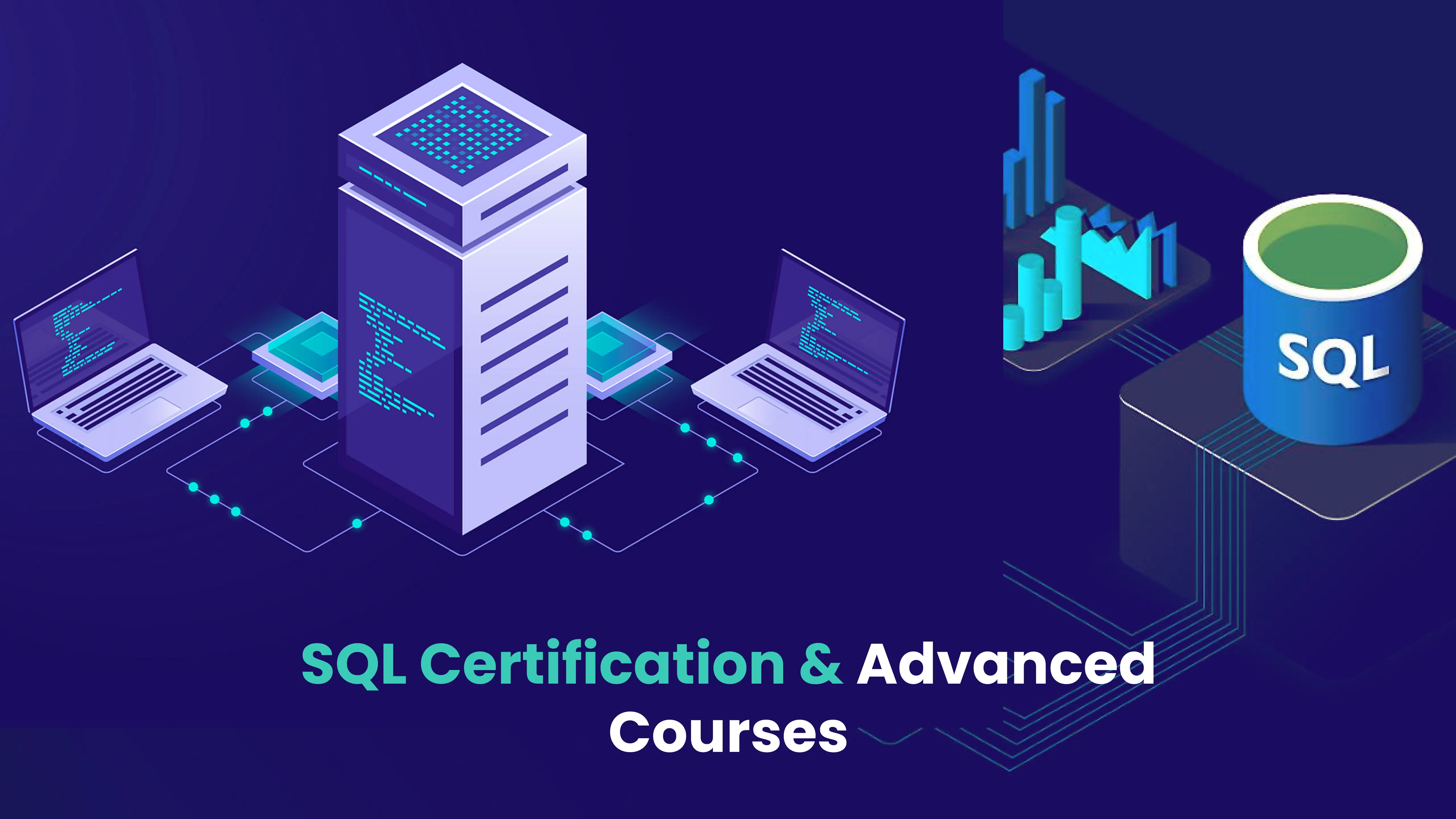
Getting SQL certifications helps to get database and SQL-related jobs. These certifications open up opportunities in fields like data science, programming, and database administration, especially valuable when dealing with large datasets.
To get SQL certified, you must complete SQL certification courses, many of which are available online. These courses cover essential topics such as database management, SQL servers, and database operations. By taking these courses, you can learn to handle data, design databases, and write SQL queries.
Having SQL certification on your resume helps in a competitive job market, increasing your chances of securing roles as a data analyst, data scientist, and software developer. SQL certification is a key stepping stone to a successful career in data-related fields.
To earn a livelihood as a coder, you must know about the database. Without improved data collection, management, and analysis abilities, developers could not create websites, software, and applications.
SQL, which stands for Structured Query Language, is indeed a programming language designed for managing and manipulating relational databases. If your career involves even a slight connection to data manipulation or analysis(e.g., back-end programming, data science), SQL is essential to learn.
SQL is used to communicate with a database. Since the 1980s, According to ANSI (American National Standards Institute) and ISO (International Organization for Standardization), It is the standard language for relational database management systems.
SQL is an essential language for working with relational databases. Meeting daily job requirements and finding employment can be challenging without this fundamental skill. In today’s job market, having the ability to work with data is not a choice but a necessity. Companies across all sectors depend on data insights. A Technavio report predicts a $142.5 billion growth in the big data market from 2020 to 2024. Proficiency in SQL could determine job success. For more information on SQL proficiency and its impact on career opportunities, visit here.
Learning SQL online is easy, and you can choose from various platforms like My SQL Basics, W3school, FreeCode Camp, Udemy, and Geeks for Geeks. Some are free, while others may cost money. Look for a course that suits your experience level, how you like to learn, and your goals. If you like doing things hands-on, find a course that lets you practice SQL with real or simulated databases. It’s all about finding the right fit for you!
Cost: Free Online Course
Rating: 4.32
Duration: 4.5 hours
What do you learn in this course?
DBMS and Fundamentals
Keys & Normalization
Installing My SQL
Commands & Operators
Filtering and Pattern Matching
Cost: Free Online Course
Rating: 4.5
Duration: 25 hours
What did you learn in the W3 School Course?
To extract and analyze data from the database
To query, manipulate, and update data in the database
To write scripts to automate repetitive tasks
To create and manage databases and tables
Cost: Free YouTube course
Rating: 4.5
Duration: 4:20:38
What did you learn from this course?
Understanding Database
Creating a Database with SQL
Installing a relational database management system(RDMS)
Database operations with MySQL
Data Manipulation with MySQL
Understanding the Value of SQL for Businesses and Individuals
Cost: Rs. 4,000
Rating: 4.6
Duration: 11 hours duration
What did you learn from the course?
Learn how to code in SQL
Create, design, and operate with SQL
Gain theoretical knowledge about database
Learn how to create an SQL from scratch
Cost: Free Online Course
Rating: 4.4
Duration: 30 days class
What did you learn from the course?
SQL basics
SQL Constraints
SQL Operators
SQL Clause
SQL Statment
SQL Grouping Data
SQL Joins
SQL Functions
Creating a database
Inserting new data into an existing database
Modifying data
Retrieving data
Deleting data
Creating or dropping new table
Setting access permissions
Creating views function and stored procedures
SQL works by understanding and analyzing data of virtually any size, from small datasets to large stacks. It’s a very powerful tool that enables you to perform many functions at high efficiency and speed.
SQL works on a non-procedural approach when interacting with databases. Its syntax is very simple, and the coder only has to specify “What to do '' and not “how to do it”.
Having a background in programming languages like C, JavaScript or PHP can facilitate learning SQL, as it familiarizes you with coding concepts.
If your current skill level is high, the classes, and courses mentioned here offer self-paced learning.
So there is yet to be a fixed timeline for mastering SQL. Continuous learning is valuable because it not only deepens your SQL expertise but also helps in understanding other database technologies, like NoSQL. In the tech world, learning is an ongoing journey.
SQL certification may be optional for some employees, but some do require it. Displaying strong SQL skills can often secure job opportunities. If you possess these skills, SQL skills can often secure job opportunities. If you possess these skills or experience, highlight them on your resume and application materials.
Oracle and IBM also offer their database/SQL certification tracks. Employers’ preferences generally match with their technology stack.
If you are already employed and wish to go to a SQL-related job, Chances are that you can convince your employer to shell out the cash for training and certifications.
Obtaining SQL certification is essential for success in data-related fields like data science and programming. SQL is a pivotal language for database management, crucial in today's data-focused job market. Top courses, such as MySQL Basics, W3School, FreeCodeCamp, Udemy, and GeeksforGeeks, cover essential topics, enhancing proficiency in SQL operations. Whether free or paid, continuous learning is crucial in the evolving tech landscape. SQL certification boosts your resume, expanding job prospects and positioning you as a valuable asset in the competitive realm of data-related careers.